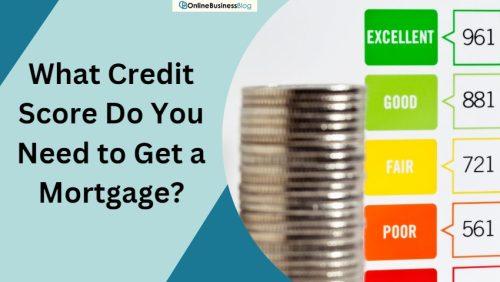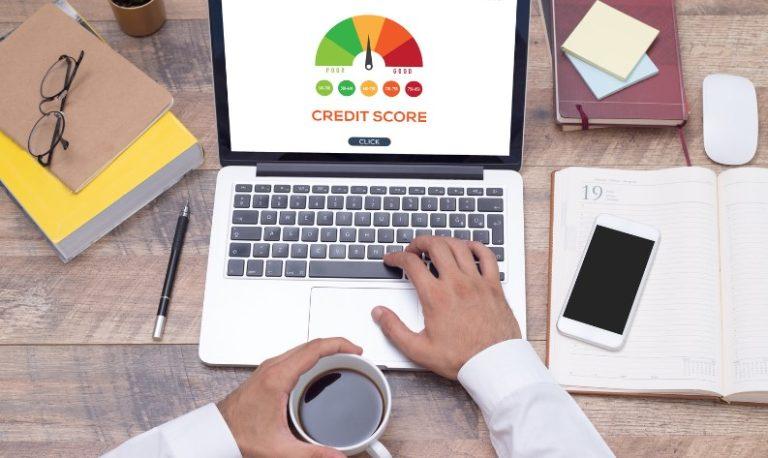Post Contents
Are you looking to buy a home but have bad credit? It can be difficult, but not impossible. In this article, we’ll cover the steps you need to take and the options available to you if you’re looking to get a mortgage with bad credit in the UK. Keep reading to find out more!
How to Get a Mortgage with Bad Credit in the UK?
What Credit Score Do You Need to Get a Mortgage?
It is possible to get a mortgage with bad credit in the UK, but there are a few things you need to know before you apply. The first is that your credit score will impact the interest rate you’re offered, so it’s important to understand what range you fall into. A score of 650 or above is considered excellent and will get you the best mortgage deals. A score of 550-649 is still good but may mean slightly higher interest rates. Anything below 550 is considered poor credit and will make it more difficult to be approved for a mortgage, but it’s not impossible.

There are a few other things lenders will look at when considering your application, such as your employment history and income. They’ll also want to see if you have any missed payments or defaults on previous loans such as business loans or home loans. If you have bad credit but are otherwise in a good financial position, there’s a good chance you’ll be approved for a mortgage. It’s important to shop around and compare deals from different lenders to make sure you’re getting the best deal possible.
How to Improve Your Credit Score?
Credit scores are important for mortgage applicants because they show lenders how risky a borrower is. A high credit score means you’re a low-risk borrower, which could lead to a lower interest rate on your mortgage. A low credit score could lead to a higher interest rate and could mean you won’t be approved for a mortgage at all.
There are several things you can do to improve your credit score, including:
- Check your credit report for mistakes and correct them
- Make all of your payments on time
- Keep your credit card balances low
- Have a mix of different types of credit
Factors That Affect Your Eligibility for a Mortgage
Your eligibility for a mortgage is affected by a variety of factors, including your credit score, employment history, and financial stability.
A low credit score can make it difficult to get approved for a mortgage, but there are still options available to those with bad credit. Employers often consider applicants’ credit scores when making hiring decisions, so a good credit score can give you an edge in the job market.

Financial stability is also important when considering your eligibility for a mortgage. Lenders want to see that you have a steady income and are able to make your monthly payments on time. If you have a history of missed payments or defaults on your loans, this could impact your ability to get approved for a mortgage.
Different Types of Mortgages Available in the UK
There are many different types of mortgages available in the UK, each with its own benefits and drawbacks.
Here is the overview of the various types of mortgages:
- Fixed–rate mortgages: as the name suggests, these have a fixed interest rate for the duration of the mortgage term. This can give you peace of mind knowing exactly how much your mortgage repayments will be each month. However, if interest rates fall during your mortgage term you may end up paying more than you would with a variable-rate mortgage.
- Variable rate mortgages: these have an interest rate that can go up or down during your mortgage term. This means your monthly repayments could increase or decrease depending on market conditions. Variable-rate mortgages tend to start off with a lower interest rate than fixed-rate mortgages, so they can be a good option if you think interest rates will fall during your mortgage term. However, if interest rates rise you could end up paying more than you would with a fixed-rate mortgage.
- Tracker mortgages: these track the Bank of England base rate (currently 0.5%), plus a margin set by your lender. So if the base rate changes, your monthly repayments will go up or down accordingly. Tracker mortgages can offer good value if the base rate is low (as it is at present), but remember that it could rise at any time during your mortgage term, which would increase your monthly repayments.
- Discounted rate mortgages: these offer a discount on the lender’s
How to get a Mortgage with Bad Credit?
Getting a mortgage with bad credit is hard,, but it’s not impossible. There are a number of things you can do to improve your chances of getting approved for a mortgage with bad credit, including:
- Save for a larger down payment.
- Get a co-signer.
- Find a smaller lender who specializes in bad credit mortgages.
- Fix any errors on your credit report.
- Show proof of financial responsibility.
Tips and Advice When Applying For A Mortgage With Bad Credit
When applying for a mortgage with bad credit in the UK, there are a few things you can do to increase your chances of being approved.

- First, make sure you are on the electoral roll and have a current account with a good payment history.
- Second, try to improve your credit score by paying off any outstanding debts and making all future payments on time.
- Finally, consider using a guarantor or taking out a joint mortgage to make yourself more attractive to lenders.
Conclusion
It is possible to get a mortgage with bad credit in the UK but you need to be careful and take measures to improve your chances of being approved. Exploring all options available, from finding a specialist lender who accepts low credit scores to improve your current score are key steps that should be taken if you want your application for a mortgage with bad credit in the UK to succeed. With this advice under your belt, we hope that you now have enough information to help you find an affordable and suitable mortgage solution. Best of luck!
FAQs on How to Get a Mortgage with Bad Credit in the UK
1. Can I get a Mortgage with really Bad Credit?
It is possible to get a mortgage with bad credit, but it may be more difficult and the terms and conditions may be less favorable. Lenders will consider your credit score and history when determining your eligibility for a mortgage, and those with lower credit scores may be viewed as higher risk. In some cases, borrowers with bad credit may need to provide a larger deposit or agree to pay a higher interest rate.
2. What is the Lowest Credit Score allowed for a Mortgage?
The minimum credit score required to get a mortgage can vary depending on the lender, but generally, a score of 500 or higher is required. However, a score of 580 or higher is typically considered the minimum required to qualify for a conventional mortgage. Borrowers with lower credit scores may be required to provide a larger deposit or pay a higher interest rate.
3. What percentage of the Mortgage can I get with Bad Credit?
The percentage of the mortgage that you can get with bad credit will depend on a number of factors, including your credit score, employment history, income, and debt-to-income (DTI) ratio. Lenders will assess these factors when determining your eligibility for a mortgage and the maximum amount that they are willing to lend you.
4. How much deposit do I need for a Mortgage with Bad Credit?
The amount of deposit required for a mortgage with bad credit will depend on the lender and the loan-to-value (LTV) ratio that they require. Generally, borrowers with bad credit will be required to provide a larger deposit than those with good credit, often 10% or more of the purchase price of the property. In some cases, lenders may require a deposit of 20% or more.


